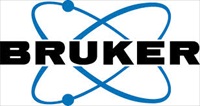Channels
Special Offers & Promotions
Bruker Announces Novel NMR Phenomics Research Capabilities
New B.I.QUANT-UR™ Module for Automated and Reproducible Quantification of up to 150 Metabolites in Urine in 80-100 Samples/Day Enhances Bruker’s NMR IVDr Platform for Translational Phenomics Research
 Bruker announces a new solution for the quantification of metabolites in urine using Nuclear Magnetic Resonance (NMR). Urine metabolic analysis is particularly valuable and information-rich, because the metabolic pathways of a wide range of nutrients, drugs and environmental contaminants can be identified in urine, even if urine is very complex to analyze. The new B.I.QUANT-UR™ module of Bruker’s successful Avance® IVDr (In Vitro Diagnostics research) 600 MHz NMR platform now provides precise, sensitive and fully reproducible results that have demonstrated great potential in preclinical animal and clinical/translational research.
Bruker announces a new solution for the quantification of metabolites in urine using Nuclear Magnetic Resonance (NMR). Urine metabolic analysis is particularly valuable and information-rich, because the metabolic pathways of a wide range of nutrients, drugs and environmental contaminants can be identified in urine, even if urine is very complex to analyze. The new B.I.QUANT-UR™ module of Bruker’s successful Avance® IVDr (In Vitro Diagnostics research) 600 MHz NMR platform now provides precise, sensitive and fully reproducible results that have demonstrated great potential in preclinical animal and clinical/translational research.
Urine is an important body fluid in metabolomics due to little interference with metabolite binding proteins. Large sample cohorts in clinical studies demand automated solutions capable of measuring and analyzing with highest information content and quantitative reproducibility. The new B.I.QUANT-UR module is a completely automated solution that can replace multiple conventional analysis methods.
Bruker’s Avance IVDr platform is optimized for clinical and translational research. It uses standard operating procedures (SOPs) in B.I.Methods to automatically generate highest quality spectra, with full quantitative reproducibility and lab-to-lab transferability, from urine measurements. This ensures the highest quantitative precision and reliability of analytical and statistical results, at a throughput of approximately 80-100 urine samples in 24 hours. Access to the Bruker Data Analysis server provides automated remote analysis.
Professor Claudio Luchinat at the University of Florence, a co-founder of the Magnetic Resonance Center (CERM), commented: “Metabolite quantification in human urine has proven a challenging task due to complex compositional changes from test person to test person, and even from the same person at different time points. Wet spiking methods according to DIN-norm to detect the limit of detection (LOD) are not delivering sufficient information for safe quantification.”
He continued to explain: “With innovative Bruker NMR validation tools it is possible to break this barrier. The new routines introduced for urine quantification also take into account substantial matrix changes going from neonates to children/adults, which all affect metabolite chemical shifts and lead to varying overlap situations due to ionic matrix changes in these two different age classes. We are directly engaged with Bruker in the project to optimize NMR shift prediction.”
Dr. Iris Mangelshots, President of Bruker BioSpin’s Applied, Industrial & Clinical (AIC) division, confirmed: “Bruker continues to innovate with the introduction of novel and performance-leading NMR solutions for translational research markets at the Metabolomics Society Meeting 2017. There is an increased demand of technologies being able to analyze large numbers of samples due to increased cohorts in clinical studies. NMR is an established tool for obtaining metabolic phenotypes. This is further evidence of expanding of our analysis support providing automatic quantification of a variety of metabolites in urine directly after the measurement. The automated quantification is based on in-house developed algorithms involving fitting predefined proton 1D NMR signals, with optional 2D NMR confirmation of identification.”
B.I.QUANT-UR can quantify up to 150 metabolic compounds, including disease markers and non-targeted classification against healthy newborn models, opening new areas of research in frequent diseases such as diabetes, metabolic syndrome and obesity. Additonally, the tool can be used to investigate the role which nutrition and environmental conditions play in health, including functional food efficiency and drug dosage. The IVDr profiling modules B.I.QUANT are for research use only and are not released for clinical diagnostics.
Media Partners


